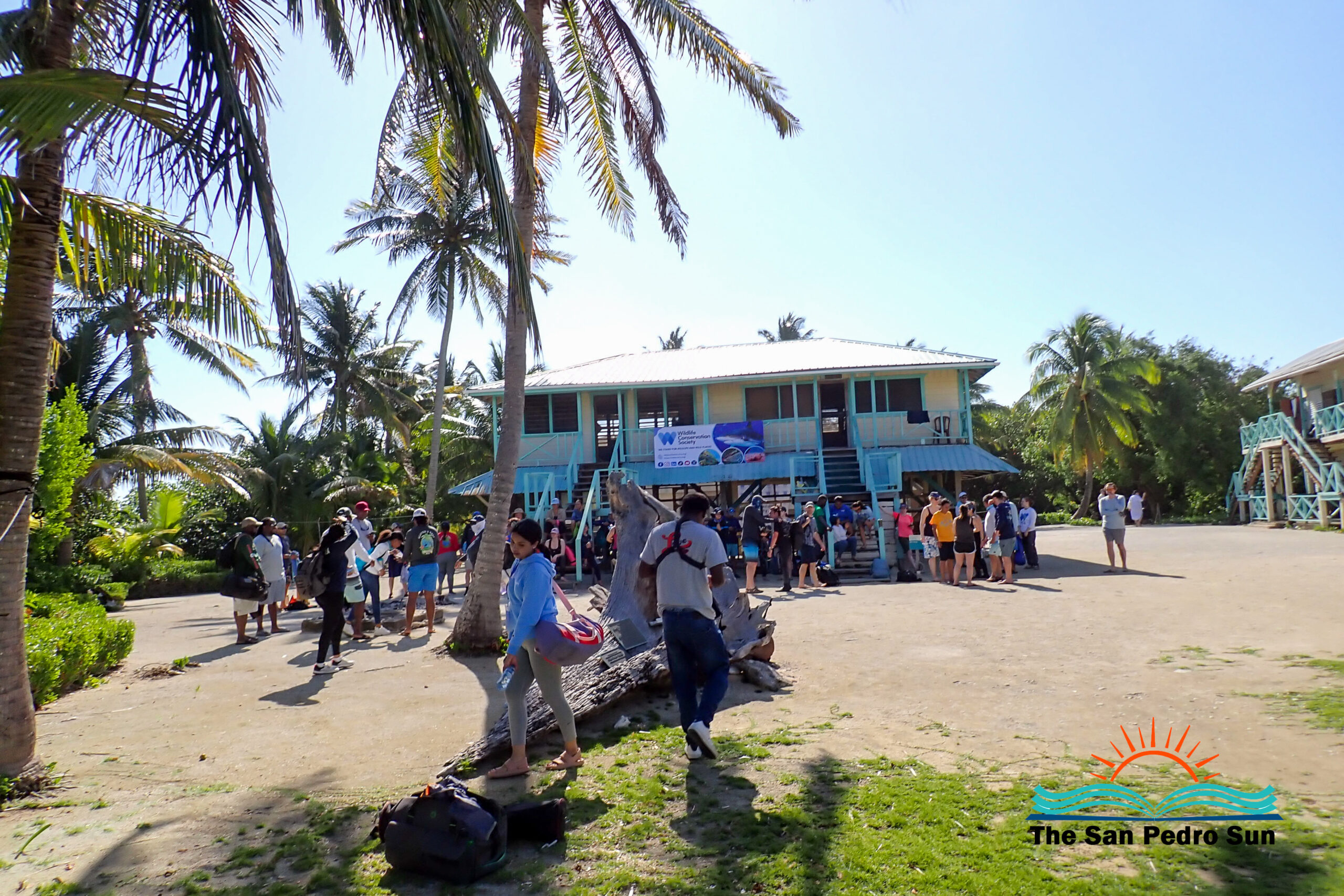Part one of a two-part series.
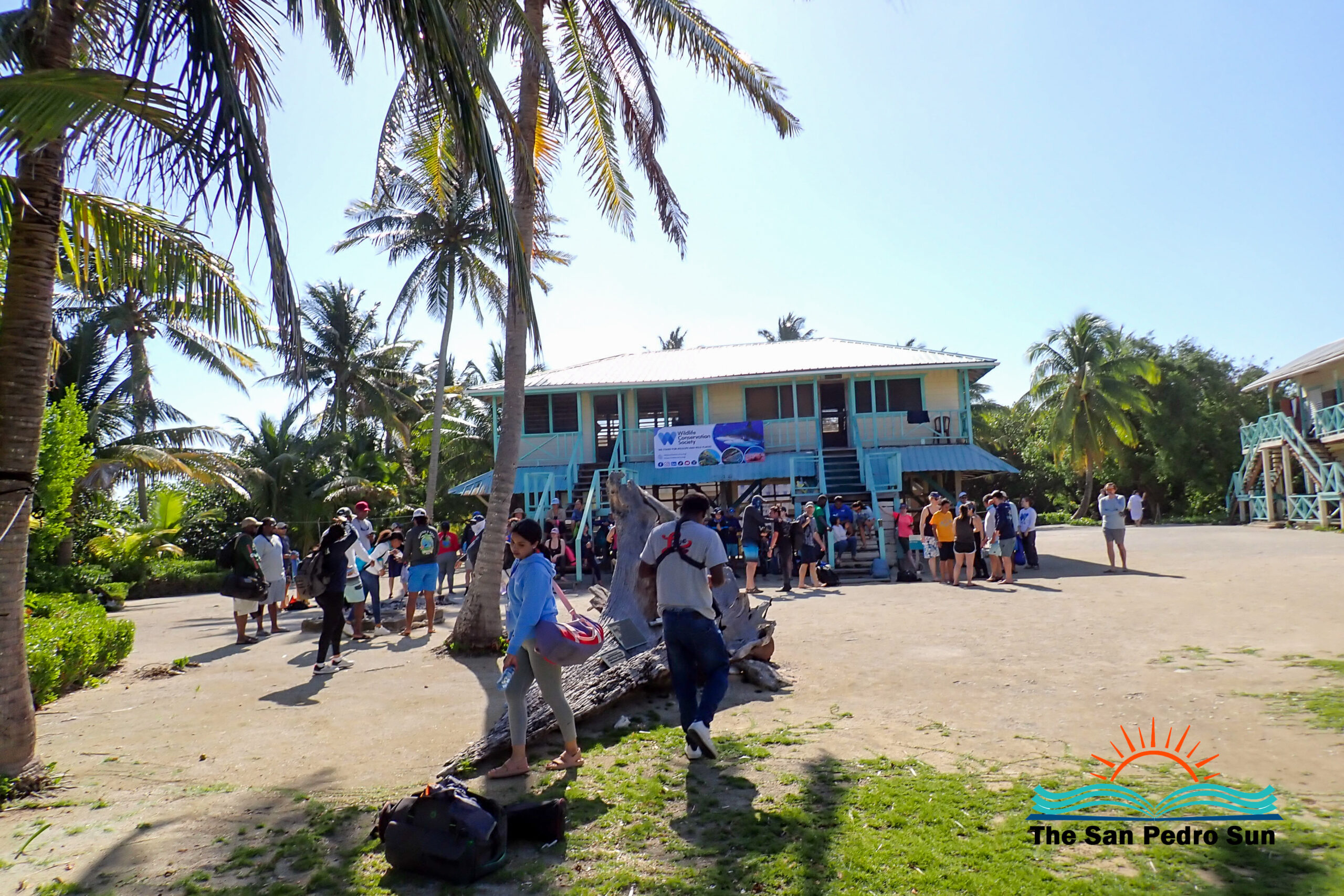
The Wildlife Conservation Society (WCS) sponsored a media trip to Middle Caye at Glover’s Reef Marine Reserve on February 28th, where experts were available for interviews while on a field trip to Glover’s Reef Research Station. The specialists were among fifty-plus marine conservationists who attended the Belize Shark Conference in Placencia from February 26th to March 1st. At the conference, regional, international, and local authorities discussed shark research, conservation, and counter-wildlife trafficking.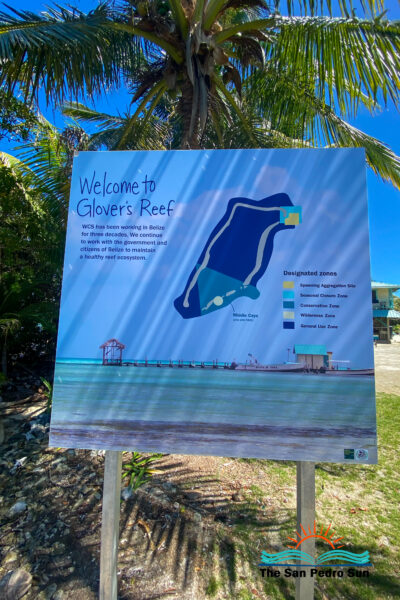
In an interview with The San Pedro Sun, WCS Communications Coordinator Deseree Arzu explained why the media was invited and highlighted their approach to conservation. “Shark Week is happening in Belize, and a host of shark experts worldwide are here, including donors. We wanted the media to be a part of it, even for one day. We knew that the group would be at Glovers Reef today to participate in their field trips, so we thought that was an opportune time to have the media there to speak with the experts and talk about the work that WCS is doing to focus on our 2030 strategy, the purpose of the meeting, how WCS is working to protect sharks in Belize and what some of the research is saying about sharks and how do we move forward? And at the same time, it’s been a while since we’ve invited the media to Glover’s Reef Research Station,” explained Arzu. “We know that the media is short-staffed, and if we can have them for one day, it would be a good thing to have different perspectives aired so that people can know what we’re doing as an organization globally, within Mesoamerica and locally here in Belize.”
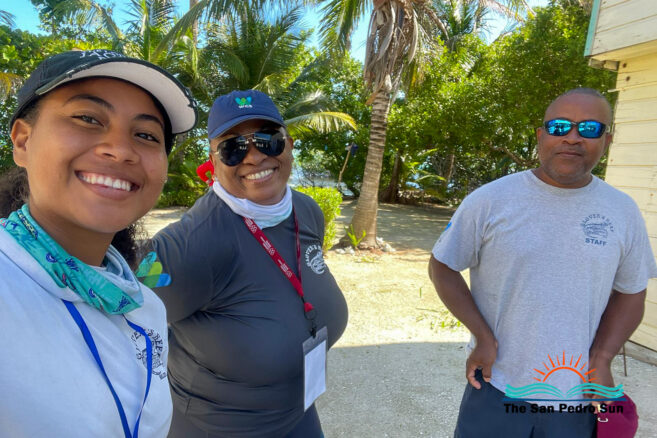
“If the media gets one takeaway from today, it will be that sharks are threatened, and human actions are the biggest threat to the shark population. We need people to know what’s happening. We don’t want people to see NGOs (non-governmental organizations) in Belize as just doing the work of Uncle Sam. We want them to see the NGOs as trying to work alongside all sorts of communities, whether fishing on the marine side or farming on the terrestrial side, to balance development with conservation and traditional beliefs and practices with conservation. We often hear the word sustainability, but all it means is that we want our future generation to enjoy what we enjoy now. Awareness is the first step in getting people to understand some of the threats to our marine resources. Then, the next step would be how I can help. What is the call for action? What steps can you take to help save the shark population? You can have conservation without putting the fishermen out of business, without them having to find a different food source for their families. That is an important message that WCS Director of Sharks and Rays Luke Warwick emphasizes. Many conservation efforts often say to stop everything, that nobody eats fish anymore, etc. Our whole approach is to incorporate the culture and livelihoods of the people into the whole conservation concept. WCS works a lot with indigenous peoples, and we know that these people have their traditional beliefs and practices. We don’t want to change or eliminate culture; we want to balance it, like I said, with environmental and conservation development for future generations. We don’t want to say stop what you’re doing exactly; we want to say, OK, how can we continue these beliefs, but how can we make certain small adjustments to ensure that there is more of whatever it is that we are taking away from the environment? For example, on the terrestrial side, people in the Belize River Valley are known for eating Hicatee (Hicatee turtles are classified as critically endangered), but they are overfished. So, let’s negotiate and say instead of taking two Hicatee from the river, let’s take one so that the other one can reproduce, and you have more turtles in the long run,” explained Arzu.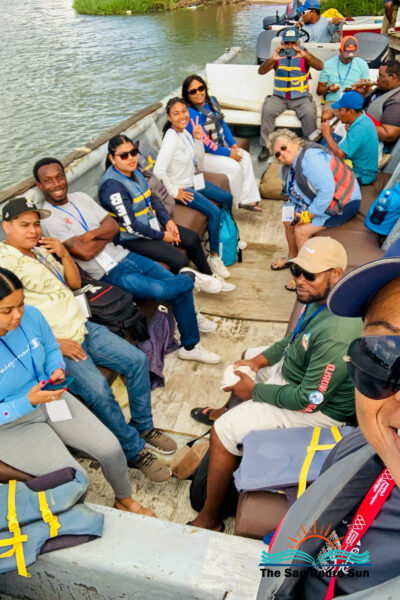
After a 31-mile boat ride from Dangriga, the media arrived at Middle Caye at 9AM. The Operations Manager of Glover’s Reef Research Station, Kenneth Gale, briefly introduced the facility and explained that the oval-shaped atoll is 20 miles long and approximately eight miles wide, with an interior lagoon containing more than 800 reef patches. Gale added that the Fisheries Department and the Belize Coast Guard serve as enforcement in the area and are accommodated at Middle Caye, while WCS focuses on public awareness and education.
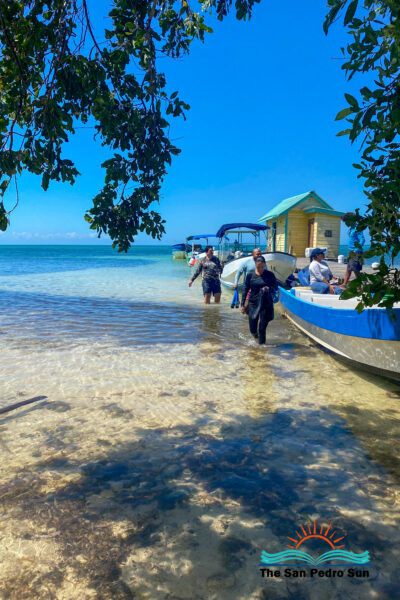
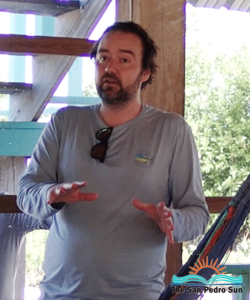
Under a shaded, enclosed palapa, Shark Conference attendants and Belizean media personnel gathered for an informal ceremony. Arzu welcomed the group and invited WCS Director of Sharks and Rays Luke Warwick to say a few words. “We are here where some of the first research in the world was conducted on our marine protected areas. So, everyone here will see some of that today, and that work has continued over time in monitoring sharks and rays,” said Warwick.
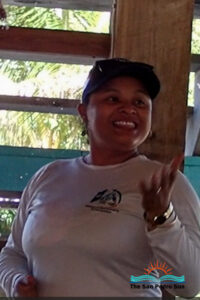
Felicia Cruz, representing Kennedy Carrillo, CEO of the Ministry of Blue Economy and Civil Aviation, was next to speak. “The Ministry of Blue Economy and Civil Aviation is very proud of our partnership with the Wildlife Conservation Society. We understand how to best apply sustainable and conservation management measures to ensure its integrity and longevity within our waters and its contribution toward biodiversity, making Belize one of the most renowned countries in the world with a rich biodiversity.”
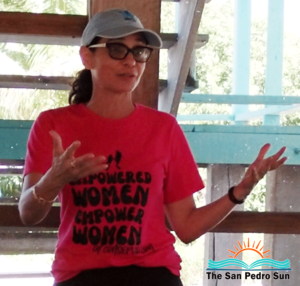
WSC Director of Belize Country Program Nicole Auil Gomez followed, thanking everyone for choosing Belize to host the WCS Shark Week and asking the group to take a moment to remember and honor the late Dr. Archie Carr. “Carr really started WCS on the journey in marine conservation and predator species. He passed away on January 21st, and I’d like to ask you to join me in a moment of silence for 78 seconds to remember the 78 years of his life.”
Christian Barrientos, WCS Mesoamerican and Western Caribbean Marine Program Director, outlined what the shark guests could anticipate for the day. Operations Manager Gale wrapped up the ceremony. The visiting scientists departed to snorkel and dive while the media interviewed WCS experts.
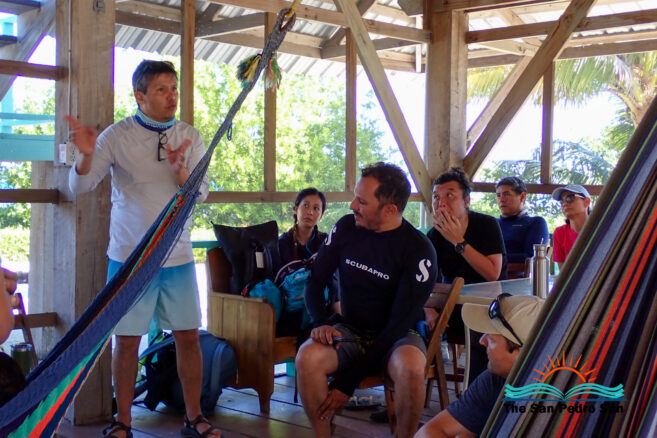
Read part two of in-depth interviews with leading WCS experts in our next San Pedro Sun issue on Friday, March 15th.
Wildlife Conservation Society saves wildlife and wild places worldwide through science, conservation action, education, and inspiring people to value nature. To achieve our mission, WCS, based at the Bronx Zoo, harnesses the power of its Global Conservation Program in nearly 60 nations and in all the world’s oceans and its five wildlife parks in New York City, visited by 4 million people annually. WCS combines its expertise in the field, zoos, and aquariums to achieve its conservation mission. Visit: newsroom.wcs.org Follow: @WCSNewsroom. For more information: 347-840-1242.

